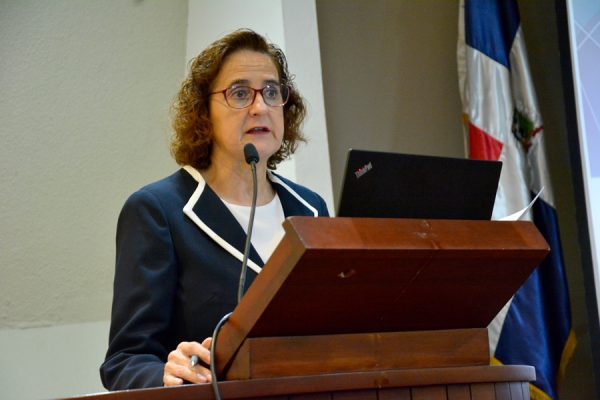
Rosa Elcarte, the local representative for United Nations International Children’s Emergency Fund, acknowledges governments are sovereign in taking decisions such as when to return to in-person learning in schools. She said the recommendation of Unicef is for schools to reopen under hygiene protocols. She made the comment when interviewed for the La Cuestion radio talk show on Monday, 8 March 2021.
She said the Unicef has recommended that schools reopen as soon as possible in all countries. Interviewed on La Cuestión on 107.7FM, she said that students have fully returned to in-person learning in Costa Rica, Paraguay, Nicaragua and Belize in the Americas. These countries have fewer active cases than the Dominican Republic, yet higher 1M death rates.
Elcarte stressed the risk of keeping children out of school is primarily in that in boys, it increases child labor and in girls, the number of early cohabitation and child pregnancies. “It is a serious problem and one that has to be confronted comprehensively,” said Elcarte.
She mentioned the Dominican Republic has been slow in reopening school contrary to global trends for the return to school. She stressed the Unicef could recommend, but each country is sovereign to make its own decisions.
Elcarte says she would have liked to see a faster return to in-person schooling in the Dominican Republic. But, she said the country has taken a step in this direction with the announcement on Friday, 5 March 2021 that school would reopen in the pre-school and elementary levels. She said studies show small children do not spread the disease, while teenagers 16+ spread the disease as adults do.
On Friday, 5 March 2021, Education Minister Roberto Furcal announced a protocol for the gradual reopening of schools starting with those eight years and younger. Furcal limited the reopening to municipalities where the positivity rate is 5% or less. Other requirements are that the school have potable water, that the local committee approves the reopening, and that each child has written parental approval. So far, this means that only schools in three provinces would qualify, Elias Piña, Monte Plata and Independencia.
Elcarte expects schools in rural areas to open before schools in the cities. She said it is up to adults to continue preventive measures to reduce the spread. The virus spread has been dropping. Elcarte is concerned that there could be a spike again as people gather for the Easter holidays.
Elcarte said that Unicef recommends countries that had closed fully to in-person learning start with the pre-school and elementary children to get accustomed to the Covid-19 back-to-school safety protocols.
Unicef has just published a report, “Covid-19: A Threat to Progress on Child Marriage” on the threat that Covid-19 represents to children in matters of child. Elcarte acknowledged that finally the Dominican Congress outlawed child marriage in the Dominican Republic this year, but that this is just a first step and much more needs to be done because the union of a girl child with an adult is seen as normal in the country and much needs to be done to change this view.
8 March 2021

